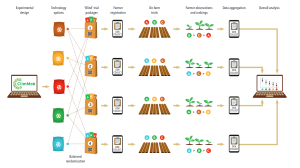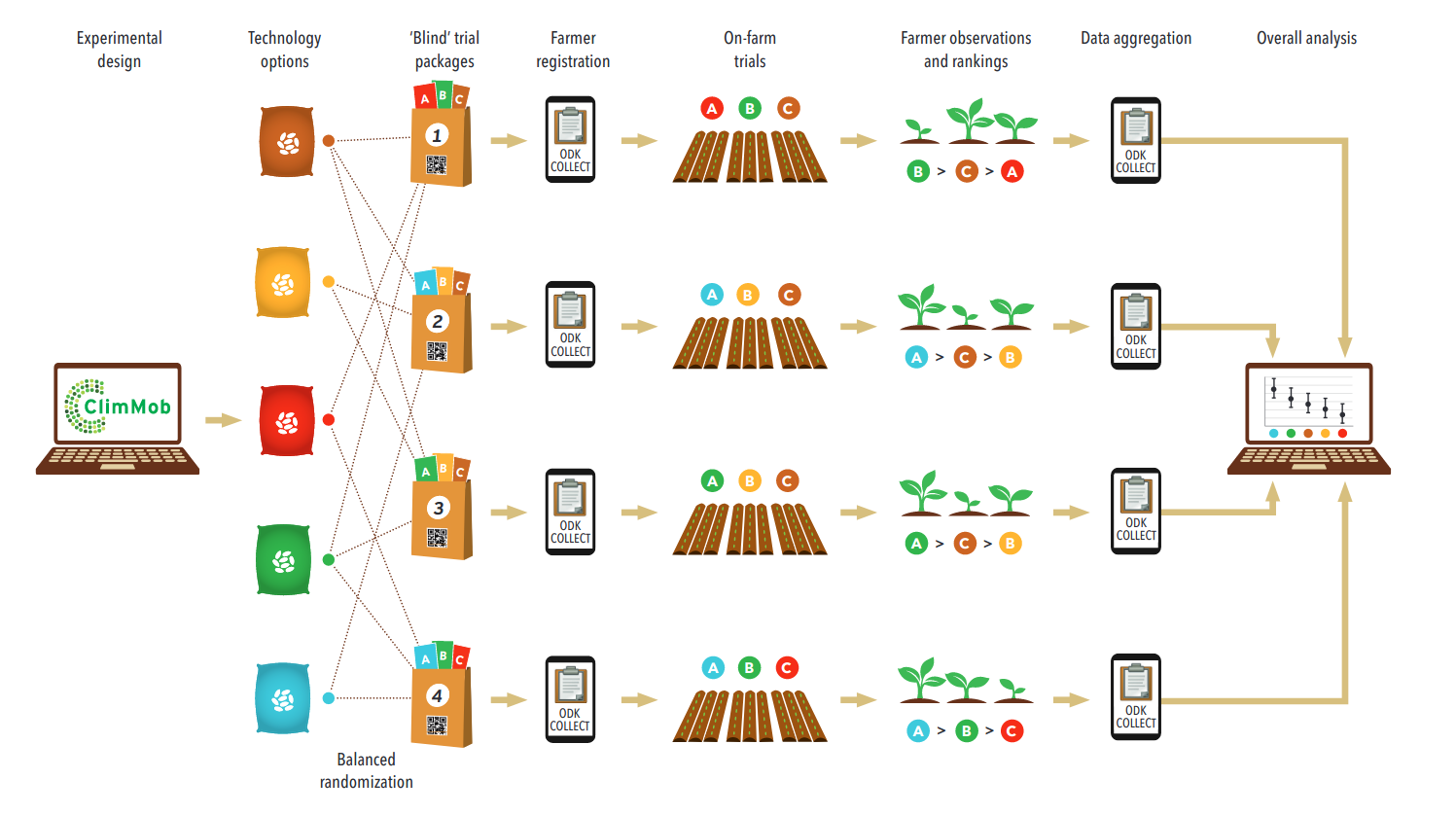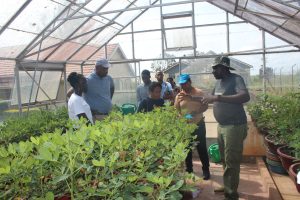The technical capacity of the team of scientists and technicians at the National Groundnut Improvement Project, NARO – NaSARRI, Serere Uganda was enhanced to improve and simplify data capture and reporting at the volunteer farmer citizen scientists’ variety test fields. The ClimMob version 3 [https://climmob.net/climmob3/login] software was designed and recommended for planning and designing of tricot experiment and the ODK Collect app [Google Application Store] for collecting data on mobile devices by the assigned field agents.
This is a component 3.0 “Conduct tricot trials with strategic partners of 3 improved varieties (candidate lines) with at least 200 farmers in Uganda, Malawi, Mozambique and Zambia in 2024 & 2025” is supported by Feed the Future Innovation Lab for Peanut at the University of Georgia with an award from the U.S. Agency for International Development (USAID) under the “Enhancing the genetic potential of peanut production in Eastern and Southern Africa” project.
Brief about the Tricot Experiment
To increase food and nutritional security to scale and in time to meet the current erratic climate, crop improvement programmes need to develop varieties that help farmers match the best varieties with their field contexts. Existing varietal evaluation processes lack scalability and predictivity in marginal production environments. Tricot approaches engage large numbers of volunteering citizen scientists who jointly generate sizable datasets that allow for geospatial analysis of climate change impact and crop variety performance which would better feed into a demand-driven, scalable solution to varietal climate adaptation. In the Tricot trial, each volunteer farmer citizen scientist plants seeds from a personal test package of three varieties previously randomly assigned from a larger pool of tested varieties. Farmers’ independent on-farm observations are compiled and analysed centrally. A simple ranking-based feedback format allows farmers with low literacy skills to contribute their evaluation data through various channels, including mobile telephones. Pilots with the tricot approach have established their potential to produce accurate data and to engage motivated farmers as citizen scientists. Analysed data will provide information about crop variety performance, feeding into a demand-driven, scalable solution to varietal climate adaptation. Such information aids better planning for varietal release, seed production and adoption by farmers.




